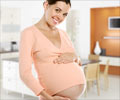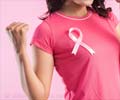Elevated breast cancer risk after childbirth in women younger than 55 has been identified by researchers.

‘In women 55 years and younger, breast cancer risk peaked about five years after they gave birth, with risk for mothers 80 percent higher compared with women who did not give birth.’





"What most people know is that women who have children tend to have lower breast cancer risk than women who have not had children, but that really comes from what breast cancer looks like for women in their 60s and beyond," said UNC Lineberger's Hazel B. Nichols, PhD, a professor in the UNC Gillings School of Global Public Health Department of Epidemiology. "We found that it can take more than 20 years for childbirth to become protective for breast cancer, and that before that, breast cancer risk was higher in women who had recently had a child." Other studies have shown an increase in breast cancer risk in younger women after childbirth, but have not had access to information about other factors that might impact risk, such as breastfeeding or family history of breast cancer, researchers said. For their analysis, researchers pooled data from 15 prospective studies from the around the globe that included 889,944 women. In addition to looking at breast cancer risk after childbirth, they also evaluated the impact of other factors, such as breastfeeding and a family history of breast cancer.
Twenty-three years after giving birth, women saw their risk level off, and pregnancy started to become protective. The increased risk after childbirth was higher for women who also had a family history of breast cancer or who had a greater number of births or were older at first birth. The pattern looked the same whether or not women breastfed. "We need to recognize that the traditional risk factors for breast cancer do not always operate the same way at younger ages," Nichols said.
While breast cancer risk increased for mothers after pregnancy, researchers also noted that the overall risk of breast cancer is still low in this group. Between the ages of 41 and 45, there were 41 more cases of breast cancer diagnosed in every 100,000 women who had given birth in the previous three to seven years compared with women who did not have children. By age 50, there 247 more cases per 100,000 women in the group that had recently given birth. "In this age group, breast cancer is uncommon," Nichols said. "The risk of developing breast cancer is still low overall, even if you've had a child five years ago."
Their findings were also not the same for all younger women. Risk was higher for women who had their first child after 35, but there was no increased risk of breast cancer after a recent birth for women who had their first child before 25. And while pregnancy did become protective against estrogen receptor-positive breast cancer years later, it did not become protective for estrogen-receptor negative breast cancer during the study.
Advertisement
"There are many ongoing studies that are trying to improve our ability to do breast cancer risk prediction on the individual level," Nichols said. "This is one piece of evidence that can be considered for building new prediction models."
Advertisement
Source-Eurekalert















